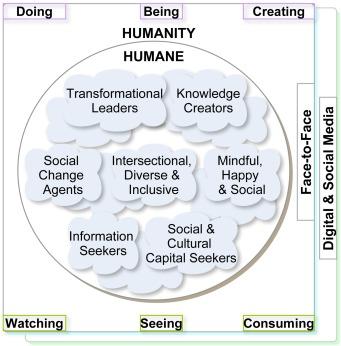E-Learning Developer: Essential Skills, Roles, and Career Pathways Explained
As technology continues to reshape teh education sector, the demand for skilled E-Learning Developers in universities, colleges, and schools is soaring. If you’re passionate about merging technology with education, an E-Learning Developer role might be yoru perfect fit. This complete guide will explore the essential skills, primary responsibilities, benefits, and career pathways associated with being an E-Learning Developer in the ever-evolving world of education technology.
What is an E-Learning developer?
An E-Learning Developer is a specialist who designs, creates, and maintains digital learning content for educational institutions. These professionals use a blend of instructional design principles,multimedia tools,and programming knowledge to deliver engaging and effective online learning experiences. As schools, colleges, and universities adopt digital platforms, E-Learning Developers are crucial in ensuring educational content is accessible, interactive, and aligned with learning objectives.
Key Roles and Responsibilities of an E-Learning Developer
The typical roles and job duties of an E-Learning Developer in education technology include:
- Instructional Design: Collaborating with subject matter experts (SMEs) to design curriculum frameworks and learning modules that foster knowledge retention and engagement.
- Content Progress: Creating multimedia content including interactive quizzes, video lectures, simulations, infographics, and assessments.
- LMS Integration: Deploying and managing courses in Learning Management systems (LMS) such as Moodle, blackboard, or Canvas.
- Quality Assurance: Testing courses for usability, accessibility, and technical soundness, ensuring they meet institutional standards.
- Continuous Betterment: Gathering feedback from students and instructors to refine and improve digital course offerings.
- Technical Support: Providing troubleshooting support for students and faculty using online learning materials and platforms.
Essential Skills for an E-Learning Developer
To thrive as an E-Learning Developer in higher education or K-12 environments, you need a balance of technical, creative, and interpersonal skills. Here are the key skills you should master:
Technical Skills
- Authoring Tools: Proficiency with tools like Articulate Storyline, Adobe captivate, or Lectora for creating interactive learning modules.
- LMS Platforms: Familiarity with deploying and managing courses in platforms such as Moodle,Blackboard,or Canvas.
- Multimedia Production: Basic skills in graphic design (Adobe Photoshop, Illustrator) and video editing (Camtasia, Adobe Premiere Pro).
- Web Development: Knowledge of HTML5, CSS, and JavaScript to customize content and troubleshooting technical issues.
- SCORM/xAPI Standards: Understanding of e-learning content standards for interoperability and tracking learner progress.
Instructional Design Skills
- Learning Theory: Understanding adult learning theories (e.g., Bloom’s Taxonomy, ADDIE model) to design effective instruction.
- Assessment Creation: Designing formative and summative assessments to measure learning outcomes.
- Accessibility: Ensuring all materials are accessible to learners with disabilities by following WCAG and ADA guidelines.
Soft Skills
- Communication: Ability to collaborate with faculty, IT staff, and students to achieve educational goals.
- Project Management: Managing timelines and deliverables for multiple concurrent projects.
- Problem-Solving: Creative and analytical thinking to overcome technical and pedagogical challenges.
- Adaptability: Staying current with evolving technologies and pedagogical strategies in education technology.
Benefits of Being an E-Learning Developer at Educational Institutions
Choosing a career as an E-Learning Developer offers several advantages, particularly in the context of universities, colleges, and schools:
- Meaningful Impact: Directly improve access to quality education and make a difference in learners’ lives.
- Continuous Learning: Opportunities for professional growth as you learn about new technologies and instructional strategies.
- Diverse Work Environment: Work with educators, IT professionals, and subject matter experts in a collaborative setting.
- Job Security: High demand for online learning experts as institutions invest in digital conversion.
- Flexible Work Arrangements: Many positions offer remote or hybrid work options.
Career Pathways and Advancement Opportunities
A typical career path for an E-Learning Developer in education technology might look like this:
- Entry-Level: E-Learning Assistant, Instructional Technology Specialist, or Junior Instructional Designer
- Mid-Level: E-Learning Developer, Instructional Designer, Learning Experience Designer
- Senior Roles: Senior E-Learning Developer, Curriculum Development Lead, E-Learning Project Manager
- Leadership: Director of E-Learning, Director of Instructional Technology, Head of Digital Learning
Additionally, many professionals specialize in certain areas, such as assessment design, mobile learning, or accessibility, or move into related fields like educational consulting, edtech product management, or faculty training and development.
Practical Tips for Aspiring E-Learning Developers
If you’re looking to become an E-learning Developer in a university, college, or school, consider these practical tips to help launch and advance your career:
- Build a strong Portfolio: showcase your e-learning projects, including sample modules, storyboards, and multimedia work—this is key to standing out to potential employers.
- Gain Real-World Experience: Volunteer or intern at educational institutions, or create sample courses on popular platforms to hone your skills.
- Get Certified: Consider credentials in instructional design, project management, or specific authoring tools to demonstrate expertise.
- Stay Current: Follow education technology trends, join professional networks, and participate in webinars or workshops to keep your skills sharp.
- Emphasize Accessibility: Always ensure your courses are usable by all learners, including those with disabilities.
- Develop Soft Skills: Strong communication, adaptability, and collaboration skills are just as crucial as technical abilities.
- Understand Pedagogy: Equip yourself with a solid foundation in instructional design theories to create purposeful, effective learning experiences.
Conclusion
The role of an E-Learning developer is central to the digital transformation of education in universities, colleges, and schools. By combining technical expertise, instructional design knowledge, and a commitment to accessibility, E-Learning Developers create engaging, effective, and inclusive online learning environments. Whether you are a recent graduate, a teacher transitioning into edtech, or an IT professional seeking a new challenge, the E-Learning Developer career pathway offers numerous opportunities for growth, impact, and lifelong learning. Embrace the journey, cultivate your skillset, and help shape the future of education technology.

